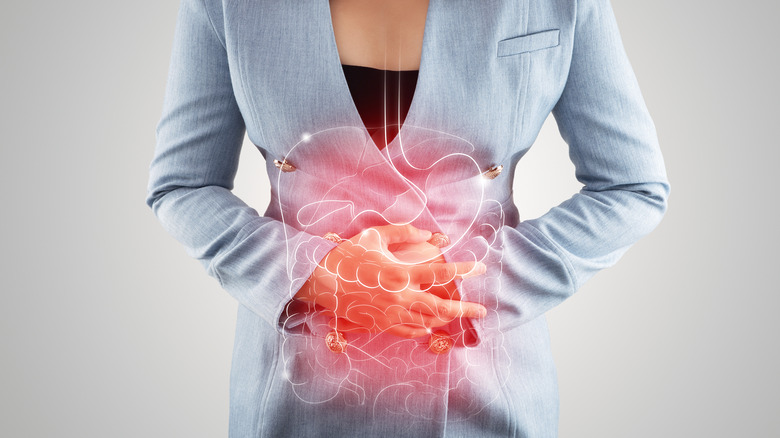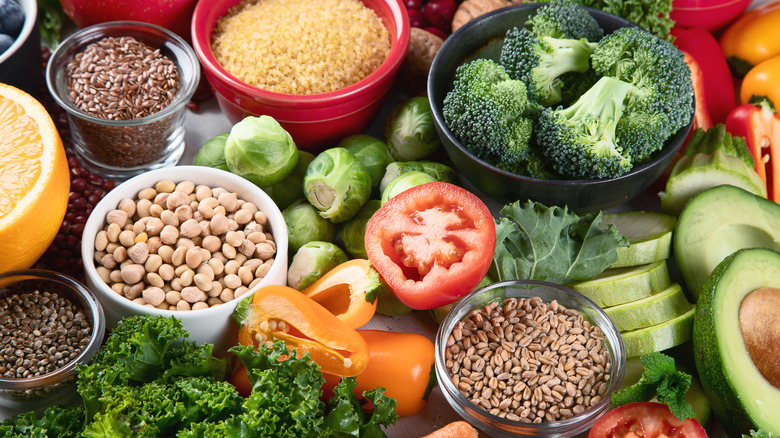Foods To Avoid If You Have Crohn's Disease
Like many gastric issues, Crohn's Disease is often misunderstood. Some people think it is an upset stomach on overdrive, while others understand that inflammation is involved but think of it more like extreme heartburn. Neither description is true. Rather, as described by the Mayo Clinic, it is a disease that inflames parts of the digestive tract and can further inflame the surrounding area.
The misconceptions about Crohn's Disease run deeper than awareness of the symptoms, however. Thinking of it like an upset stomach or something akin to heartburn leads people to the assumption that flare-ups are caused by dietary choices and that a change in diet can cure them. Neither, unfortunately, is true.
Researchers still aren't sure exactly what causes Crohn's Disease. There is most likely a genetic cause, according to experts at the Mayo Clinic. But whether that cause is a genetic mutation or heredity is still unknown. Experts do know that it is not caused by diet, however. But as registered dietitian Anna Taylor explained to the Cleveland Clinic, certain foods can make existing flare-ups worse.
Don't feed the flare-up
Most of the time people want a high-fiber diet. But when someone with Crohn's is having a flare-up, that is the last thing they need according to Taylor. She told the Cleveland Clinic that foods like whole grains, fibrous fruit or vegetables, and beans are a bad idea when someone is dealing with Crohn's symptoms. All of these foods stimulate the digestive tract which can make symptoms worse.
Beans are a double no because they can cause gas in addition to stimulating digestion. Certain vegetables like brussels sprouts, cabbage, and broccoli are also on this list of firm no's for the same reason. Fruits or vegetables with skins and seeds should also be avoided, though people find fruit like canned pears don't have too much of an impact on them.
Caffeine also stimulates the digestive system, which is why Taylor recommends skipping coffee and soda as well. Tea might be easier to handle as the caffeine content is lower. But as Taylor points out, different people will react to foods differently.
The Crohn's and Colitis Foundation also suggests staying away from sugar and sugar substitutes. Any sweetener ending in "tol" (like xylitol) is hard for the body to absorb which can irritate the digestive tract — the same reason alcohol should be avoided during a flare-up as well. This reasoning also extends to greasy foods and dairy, since the fat content is hard for the body to process.


